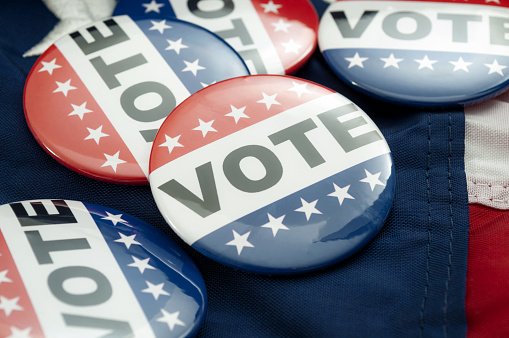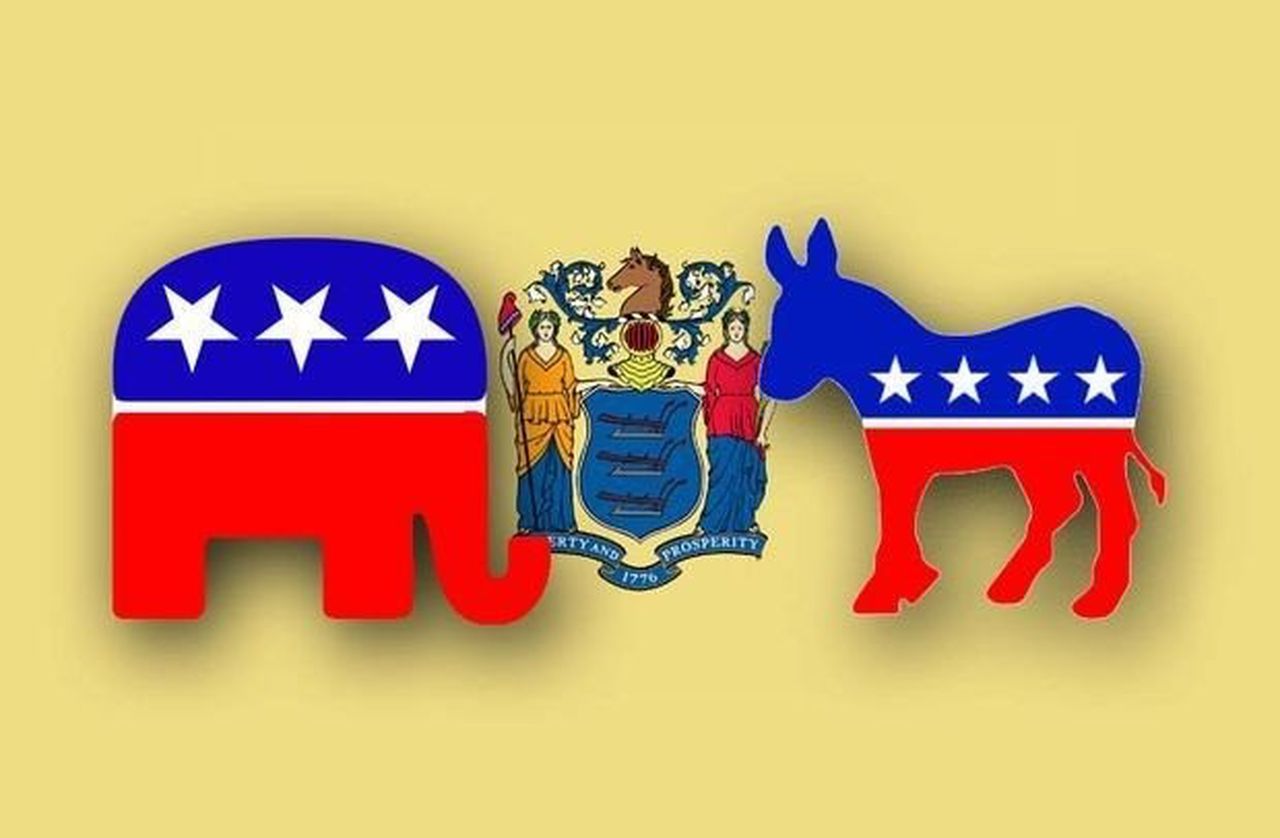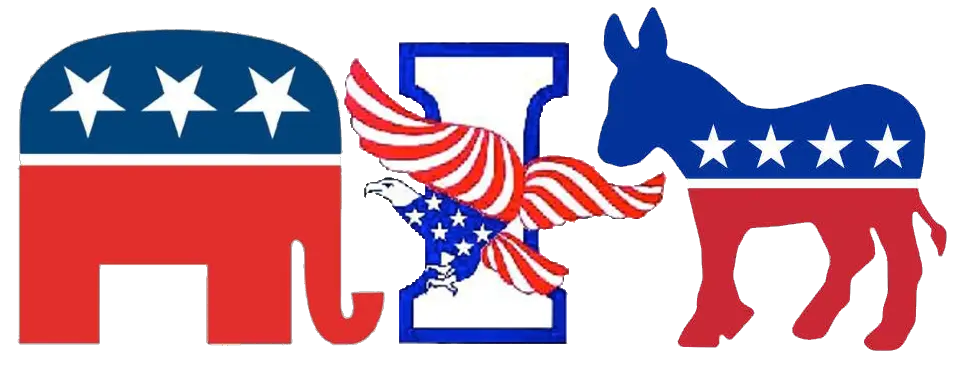Where Can I Register To Vote
You may submit your voter registration application online at RegisterToVote.ca.gov. You can also pick up a paper application at your county elections office, any Department of Motor Vehicles field office, and many post offices, public libraries, and government offices. To have an application mailed to you, call your county elections office or the Secretary of State’s toll-free Voter Hotline at 345-VOTE .
Do You Have To Vote For The Party Youre Registered With
Your state may give you the opportunity to declare your political party affiliation on your voter registration card.
-
You do not have to vote for the party youre registered with, in a federal, state, or local general election.
-
But in a presidential primary or caucus, depending on your states rules, you may have to vote for the political party youve registered with.
Republican Challengers To Mark Kelly In Arizona
Senator Mark Kelly, a Democrat who won office in a special election, is seeking a full term. The Republicans who want the chance to stop him are Mark Brnovich, Arizonas attorney general since 2015 Mick McGuire, a retired major general in the U.S. Air Force Jim Lamon, a businessman Blake Masters, chief operating officer of an investment firm run by Mr. Trumps tech ally Peter Thiel and Justin Olson, a member of the Arizona Corporation Commission.
Also Check: Did Trump Say He Would Run Republican Because They’re Dumb
Update: Trend Continues Of More Dems Switching To Gop Than Vice
More than two-and-a-half times as many Democrats changed their party registrations to Republican in Nevada during December, according to figures from the secretary of state.
About one and a half times more Dems switched to nonpartisan as did Republicans.
I will be tracking this all year. The numbers for last month:
Democrat to Republican: 350
All major party branding problems are equal, but some are more equal than others.
To wit:
More than two and a half times as many Democrats have switched their voter registrations to Republicans as vice-versa during the last three months, a statistic with ominous portents for Democratic candidates.
The numbers since September also show that one and a half times as many Democrats switched to nonpartisan as did Republicans numbers also reflected in how many major party voters would rather be members of The Jedi Party or some other minor or essentially nonexistent party.
Here are the numbers, via the secretary of state:
Democrat to Republican: 1,912
Democrat to Other: 2,524
Republican to Other: 1,647
So what does this mean? Some thoughts inserting caveat that this is just three months of stats and it is a long way before November 2022:
—I am sure Dems were hopeful that the Trump brand would have caused more Republicans to flee than Democrats. But the Biden brand is now proving toxic or appears to be at least in 2021.
—The Other number should worry the Dems, too. Ill keep an eye on that pattern, too.
Voting In Presidential Primary Elections

Voters who registered to vote without stating a political party preference are known as No Party Preference voters. NPP voters were formerly known as decline-to-state or DTS voters.
For presidential primary elections: NPP voters will receive a non-partisan ballot that does not include presidential candidates. A nonpartisan ballot contains only the names of candidates for voter-nominated offices and local nonpartisan offices and measures. However, NPP voters may vote in a political partys partisan election if the political party, by party rule duly noticed to the Secretary of State, authorizes NPP voters to vote in the next presidential primary election. An NPP voter may request the ballot of one of the political parties, if any, that authorizes NPP voters to vote in the presidential primary election.
Also Check: Donald Trump Republicans Are The Dumbest Group Of Voters
No Party Preference Additional Questions
The Secretary of States Office has advised the Registrar of Voters that three qualified parties are allowing voters not affiliated with a political party to vote for their parties candidates in the 2020 Presidential Primary Election. The parties allowing non-affiliated voters to do so are the Democratic Party, American Independent Party, and the Libertarian Party.
The following are frequently asked questions concerning No Party Preference Voters:
As a No Party Preference Voter, why did I receive a postcard?Since you are registered as No Party Preference, you received a postcard explaining that you have the option to vote for candidates of qualified parties if they notified the Secretary of State that they are allowing non-affiliated voters to do so. You can request a vote-by-mail ballot from the Democratic Party, American Independent Party or the Libertarian party by returning the postcard, or. You can also call our office to make this request at 714-567-7600.
Why are only three parties listed on the postcard and not all the other qualified parties, including the Republican, Green, and Peace and Freedom Parties?Only the Democratic, American Independent, and Libertarian Parties notified the Secretary of State that they are allowing non-affiliated voters to vote for candidates of their parties.
If I am a No Party Preference voter, how can I request a ballot for the Republican Party, Green Party, or Peace and Freedom Party?You need to re-register with that party. Click
Important Governors Races Happening This Year
This November, voters in three dozen states will elect, or re-elect, their chief executive. Even before the candidate matchups are set, the contours of the debate in many of these races are clear. The races for governor are likely to be noisy, with fights over schools, managing the economy, residual Covid debates and race and gender politics.
In some of the most competitive races, the outcome has implications far beyond the governors mansion. With many Republican voters embracing debunked theories about former President Donald J. Trumps loss in the 2020 election and pushing for new voting restrictions, governors in battleground states are at the front line in a fight over American democracy, determining how easy it is to vote and even whether election results will be accepted, no matter which party wins.
Here are some of the races were watching.
Also Check: Patriot Chrysler Dodge Jeep Ram Mcalester
When Are The Key Races Taking Place
The midterm election gantlet, flush with bitter and costly primaries that will set the stage for fights over control of Congress and governors offices, is about to enter a particularly rugged stretch.
Four key states will hold primary contests in May: Ohio, Pennsylvania, North Carolina and Georgia.
But in other states, the races run until September.
Circle these dates:
States With Open Primaries For Other Elections
A similar system known as a nonpartisan blanket primary has been used in Louisiana for state and local elections since 1976, and began to be used in Washington, after numerous court challenges, in 2008.
In California, under Proposition 14, a measure that easily passed, traditional party primaries were replaced in 2011 with wide-open elections. Proposition 14, known as the open primary measure, gave every voter the same ballot in primary elections for most state and federal races, except the presidential contest.
Most primaries in New York are closed, but state law contains a provision allowing parties to use a different method if they want. Currently, only the Independence Party chooses to allow unaffiliated voters to participate.
Read Also: Trump Favorability Among Republicans
So How Does That Compare
Voters who live in states with closed primaries are required to register with a political party in order to vote in that partys primary. If you wanted to vote in the Republican primary in New York, you have to register as a Republican. Oftentimes, third-party voters are locked out of the Republican and Democratic primaries. But some states, like Oklahoma, are a bit of a hybrid and let independent voters choose which primaries they want to participate in.
Recommended Reading: Can Registered Republicans Vote In Democratic Primaries
When Is The Deadline To Register
The deadline for voting in Pennsylvania is today.
Some states allow same-day registration and others require you to register months in advance of the primary. In Pennsylvania, the deadline to register to vote is today, Monday, March 28.
You can register to vote online here, in person at your county voter registration office, or by mail to your county voter registration office You can download a blank voter registration form to mail or drop off in person here.
For some reason, the site for registering to vote online currently reads: The last day to register before the 2016 GENERAL PRIMARY was 03/28/2016. Any application submitted now until 04/26/2016 will be held and processed the day after the 2016 GENERAL PRIMARY. If you are registering for the first time and are not already registered to vote, you will not be able to vote in the 2016 GENERAL PRIMARY. However, today is March 28 and is supposed to be the final day for registration. Were not certain why the deadline is over banner is on the website at the time of publication.
You May Like: Difference Between Republicans And Democrats
Also Check: How Many Seats Did Dems Win
What Do Party Preferences Mean When Listed With Candidates Names On The Ballot What Are The Qualified Political Parties And Abbreviations Of Those Party Names
The term party preference is now used in place of the term party affiliation. A candidate must indicate his or her preference or lack of preference for a qualified political party. If the candidate has a qualified political party preference that qualified political party will be indicated by the candidates name on the ballot. If a candidate does not have a qualified political party preference, Party Preference: None will be indicated by the candidates name on the ballot.
Similarly, voters who were previously known as decline-to-state voters are now known as having no party preference or known as NPP voters.
Abbreviations for the qualified political parties are:
- DEM = Democratic Party
Dont Miss: Are The Republicans Caucusing In Iowa
Why Was My Precinct/polling Place Changed

Counties try to use the same polling place for each election, so your polling place normally does not change between the primary and the general elections. If the county is conducting smaller local elections where the turnout is likely to be lower, the county may consolidate precincts into fewer polling places.
You can always determine where your polling place is by looking at the back of your county voter information guide, which you will receive from your county elections official. The back cover contains the name and address of your polling place. You can also call your county elections official to find out where your polling place is located.
If you live in a county that is conducting elections under the California Voter’s Choice Act, please visit that web page for more information.
Recommended Reading: Federal Tires Diesel Brothers
Can A Registered Republican Vote For A Democrat In The Primary Election In Ohio
From the Ohio Secretary of State web site: “How do I establishwhich political partys ballot I am entitled to vote?” “You mayvote the primary ballot of the political party with which youcurrently wish to be affiliated. If you voted the primary ballot ofa different political party in 2005 or 2006, you will complete astatement at your polling place confirming the change in yourpolitical party affiliation.”http://www.sos.state.oh.us/sos/PublicAffairs/VoterInfoGuide.aspx?Section=15
Unaffiliated Voters Exceed Registered Democrats Republicans In Nc
GREENVILLE, N.C. -Historically, most North Carolinians are registered as Democrats or Republicans. Now unaffiliated voters are the majority in NC.
According to the North Carolina State Board of Elections, 2.5 million North Carolinians are registered as unaffiliated voters, outnumbering the 2.4 million Democrats and 2.1 million Republicans.
ECU junior Melody Martinez is one of the many unaffiliated voters.
I think its the safest option in the generation were in right now. I see both sides perfectly. Sometimes I agree sometimes I disagree. I think its just safe to stay in the middle.
Whats the advantage of being unaffiliated? ECU Political science professor Peter Francia says the flexibility of it can be appealing.
If youre a registered Republican you cannot vote in the Democratic primary, Francia said. If youre a registered Democrat, you cant vote in the Republican primary. If youre an unaffiliated voter, you have the option to choose on primary day which party primary they wish to vote in.
Francia says the root of this division doesnt stem from recent elections. It began nearly two decades ago.
You can go back all the way to the Bill Clinton presidency to start seeing real evidence of the electorate being more polarized.
The last time North Carolina saw an increase in unaffiliated voters was in 1988. Thats the year the Republican party opened its primaries to unaffiliated voters.
The last day to register to vote is April 22.
Most Read
Also Check: Patriot Village Apartments
Why Are The Midterm Elections So Important
Midterm elections take place in the United States two years after a presidential election, at the midpoint of a presidential term hence the name.
This year, a lot of seats are up for grabs, including: those of the entire 435 voting members of the House of Representatives, who serve two-year terms 35 of the 100 Senate seats, for six-year terms that are staggered 36 of 50 governorships and lots of state legislative seats as well as other state and local offices.
Political parties that control the White House generally lose seats in Congress during the midterms, as voters reflexively tend to check the party in power and as bold promises from the presidential campaign trail give way to the grinding reality of Washington.
And with rising inflation weighing on voters, and President Bidens approval rating stuck in the low 40s, pollsters are increasingly forecasting that Democratic losses will be substantial.
The result will set the stage for the second half of Mr. Bidens term of office.
Azi Paybarah
California And Primary Election Alternatives
A modified closed primary was in effect in from 2001 to 2011. Each political party could decide whether or not they wish to allow unaffiliated voters to vote in their partys primary. This appeared to avoid the constitutional concerns of both the open and the closed primary. In the 2004 and 2006 primary elections, the Republican, Democratic, and American Independent parties all opted to allow unaffiliated voters to request their partys ballot. However, since the 2008 presidential primary election, only the and American Independent parties have taken this option, while the Republican party has not.
In 2011, the state adopted a modified open primary. Individual citizens may vote for any candidate, and the top two candidates regardless of party will advance to the general election. The Presidential election is exempt from this voting method as it is a contest for delegates rather than a direct election for an office.
A potential side effect of the open primary is that parties that run more candidates may find themselves at a disadvantage, since their partisan supporters votes will be split more ways in the primary and thus those candidates may have a harder time reaching the top-two ranking when competing with parties that run fewer candidates.
You May Like: Patriots Tires And Wheels
Open Primaries In The United States
An open primary is a primary election that does not require voters to be affiliated with a political party in order to vote for partisan candidates. In a traditional open primary, voters may select one partys ballot and vote for that partys nomination. As in a closed primary, the highest voted candidate in each party then proceeds to the general election. In a nonpartisan blanket primary, all candidates appear on the same ballot and the two highest voted candidates proceed to the runoff election, regardless of party affiliation. The constitutionality of this system was affirmed by the Supreme Court of the United States in 2008, whereas a partisan blanket primary was previously ruled to be unconstitutional in 2000.The arguments for open primaries are that voters can make independent choices, building consensus that the electoral process is not splintered or undermined by the presence of multiple political parties.
A Democratic Effort Against Ron Johnson In Wisconsin
Several Democrats are trying to oust Senator Ron Johnson, a Republican whose approval rating has fallen amid an onslaught of television ads criticizing him for casting doubts about Mr. Bidens election. They include Mandela Barnes, the lieutenant governor Sarah Godlewski, the state treasurer Alex Lasry, a vice president for the Milwaukee Bucks and Tom Nelson, the top elected official in Outagamie County.
Also Check: Patriots On Tv Tonight
Is Voter Registration Information Confidential
The voter registration rolls are not available to the general public. However, California law allows certain voter information to be released to a member of the California Legislature or U.S. Congress, to any candidate, to any committee for or against a proposed ballot measure, and to any person for election, scholarly, journalistic, or political purpose, or for governmental purposes. Even in these cases, a few items remain confidential and are never provided to any requestor: your social security number, your driver license number, and your signature.
Trumps Move Against Lisa Murkowski In Alaska

Mr. Trump endorsed Kelly Tshibaka to run against Senator Lisa Murkowski, who voted for Mr. Trumps impeachment. Ms. Murkowski is seeking a fourth term.
Ms. Tshibaka, a former commissioner in Alaskas Department of Administration, is trying to capitalize on right-wing antipathy to Ms. Murkowski, which was inflamed when she voted in 2017 to preserve the Affordable Care Act and in 2018 to oppose Justice Brett M. Kavanaughs confirmation.
The two Republicans will not go head-to-head in a traditional primary, however: Alaskas primary is open to candidates and voters of any political stripe. The top four vote-getters will compete on a ranked-choice ballot in November, under election rules that were engineered by Ms. Murkowskis allies.
You May Like: Will Republicans Win Midterms
